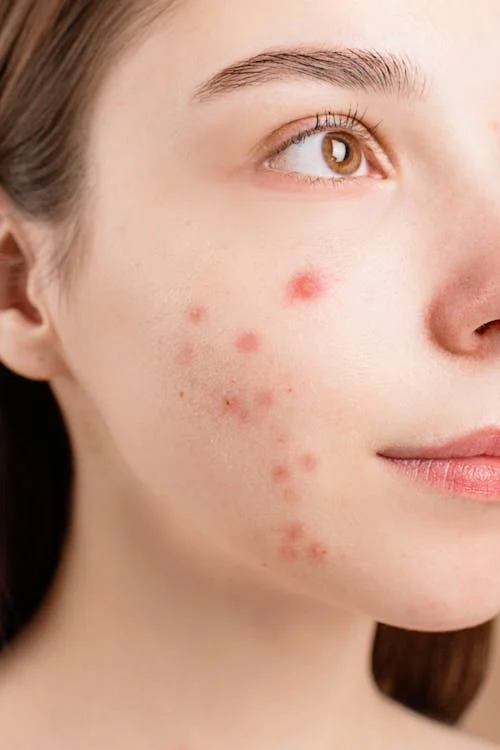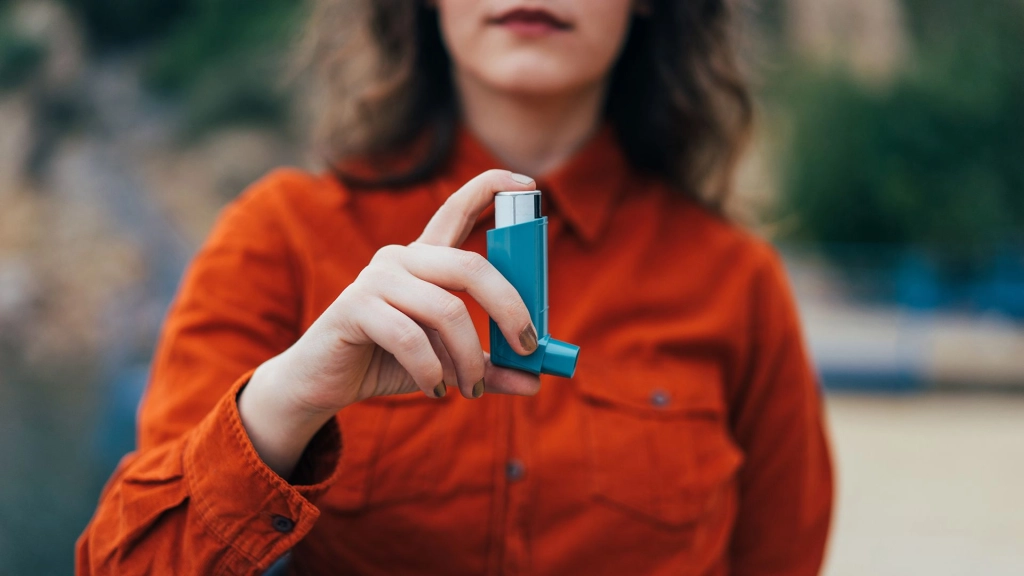What is Acne?
Acne is a common skin condition, particularly among adolescents and young adults. There are various treatments available, and the development of acne can be highly variable. This information focuses on “ordinary” acne (acne vulgaris) seen in teenagers and young adults.
At a Glance
- Acne is the most common skin disease in teenagers.
- Acne can be especially troublesome during adolescence.
- Acne lesions are more persistent than regular pimples and blackheads.
- Acne usually decreases on its own after the age of 20.
- Various products, such as face tonics, are available but their effectiveness is unproven.
What is Acne?
Pimples are a normal sign of adolescence. While some teens may have only a few pimples, others may experience persistent and visible acne. Treatment also requires patience. The following text provides information about acne vulgaris – “ordinary” acne – in adolescents and young adults.
How Does Acne Appear?
Doctors distinguish between mild, moderate, and severe acne, as well as inflammatory and non-inflammatory acne. Non-inflammatory acne is considered mild – skin changes are usually referred to as “pimples” or “blackheads” rather than acne.
What sets acne apart from regular pimples is the duration and severity of skin changes. Acne lesions develop over a long period and can persist for a long time. Small red spots or scars may also remain.
Mild Acne
In mild acne, sebaceous glands become clogged, leading to the formation of blackheads (comedones). When the skin pigment melanin reacts with oxygen in the air, open blackheads with black tips form. Closed blackheads appear whitish. If more sebum accumulates in blackheads, bacteria can grow there, leading to inflammatory acne lesions. Mild acne typically features a few or small acne lesions.
Moderate Acne
In moderate acne, there is a significantly higher number of acne lesions compared to mild acne. More inflamed lesions are referred to as “papules” (small bumps) or “pustules” (with pus).
Severe Acne
In severe acne, numerous papules and pustules form. Additionally, red, painful bumps are often present on the skin. Severe acne can cause permanent scarring.
What Causes Acne?
During adolescence, the body’s hormonal balance undergoes fundamental changes. Both boys and girls experience an increase in androgens, which stimulate the skin to produce more oil. This skin oil, known as sebum, helps keep the skin flexible and protected.
When a layer forms that clogs the exit of sebaceous glands, blackheads appear. These blackheads can become inflamed and lead to acne lesions.
Since the body produces more androgens during adolescence, acne is more common in teenagers. By the early twenties, acne lesions typically become less of an issue.
Genetic predisposition and the immune system may also affect whether someone develops acne.
Important Information: Acne usually appears on the face, chest, shoulders, and back, as these areas have a high number of sebaceous glands.
What Can Worsen Acne?
Acne is not only triggered by body hormones. The use of hormonal preparations such as anabolic steroids (for muscle building), corticosteroids, or antiepileptic drugs can also play a role.
Additionally, anything that clogs the pores can exacerbate acne. This includes oily skincare products like creams and oils, as well as vigorous friction or squeezing of blackheads.
There are many suspected factors that might contribute to acne development, though these are not definitively proven:
- Hygiene: There is no evidence that poor hygiene triggers or worsens acne.
- Diet: Scientific studies have not found a link between acne development and specific foods like meat, dairy products, or chocolate. Carbohydrates that cause rapid spikes in blood sugar, such as sugary products, potatoes, or white bread, are suspected but not definitively proven to stimulate acne.
- Smoking: It is unclear whether smoking increases acne.
- Stress: Many people report that stress has a negative effect on their skin. Some studies suggest that stress may trigger acne.
How Common is Acne?
Acne is the most common skin disease among teenagers. Most teens have only mild acne. Moderate to severe acne is seen in 15 to 30% of teenagers. It is more common in boys than girls.
How Long Does Acne Last?
Acne usually resolves on its own around the age of 20. However, some adults over 30 may also experience acne. Sometimes, scars or red or brown spots may remain on the skin.
What Can You Do About Acne?
Various methods and products are suggested to improve the skin, such as UV rays, specific foods, or face tonics. However, their effectiveness is not proven for everyone. Generally, a few agents and skincare products should be used to protect and not irritate the skin.
- Cleansing: Use soap-free cleansing agents that are suitable for the skin’s pH (5.5).
- Skin Care: Light water-based oil emulsions (lotions) or moisturizing gels (hydrogels) can be used. Oily creams and oils can clog pores and are therefore not suitable.
- Medications: There are various topical or oral medications for acne. Their effectiveness is not proven for all medications. For example, antibiotics, benzoyl peroxide, and retinoids may provide relief.
Important Information: Treatment requires patience. Skin usually improves only after agents are used for a long time – this can sometimes take months or even years. Treatments may also have side effects.
How to Cope with Acne in Daily Life?
Teenagers are often insecure and highly critical of their appearance. Acne can add an extra burden to other teenage issues. Some teens feel embarrassed about their many pimples and do not find themselves attractive.
How teenagers cope with acne varies greatly and is largely dependent on their self-confidence. While some may not be very concerned, others may withdraw and feel depressed. This can lead to less social interaction and more family disputes.
For teenagers with acne and lower self-confidence, friends and family often provide especially important support and help.



